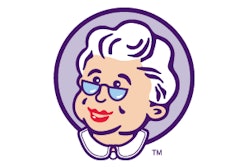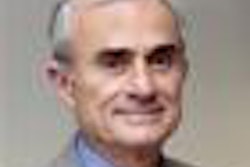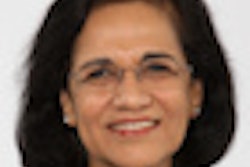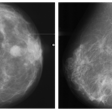For years, radiology has been among the higher-earning physician specialties, and radiologists have often been thought of as entrepreneurial. But how close is this perception to reality? Researchers from Thomas Jefferson University Hospitals discussed the topic at the RSNA 2012 meeting.
Dr. David C. Levin; Dr. Vijay Rao; Laurence Parker, PhD; and Andrea Frangos conducted a study to evaluate what proportion of noninvasive diagnostic imaging done by radiologists occurred in offices, measuring entrepreneurship by how much private-office work radiologists perform.
The team used the Medicare Part B Physician/Supplier Procedure Summary Master Files for 2000 to 2010, selecting all codes for noninvasive diagnostic imaging, as well as specialty codes and place-of-service codes to identify exams performed by radiologists in private offices as compared to hospital settings. Levin's group tabulated global and professional component claims but not technical component claims; it assigned the applicable relative value unit (RVU) rates for each noninvasive diagnostic imaging CPT code and calculated RVU rates per 1,000 fee-for-service Medicare beneficiaries.
"RVU rates reflect workload and costs and were therefore a better metric than utilization rates," according to Levin and colleagues.
The majority (81%) of radiologists' RVUs for noninvasive diagnostic imaging were conducted in hospital settings as opposed to private offices, the researchers found -- and there has been relatively little change in this distribution in the past decade. In fact, of all elective outpatient noninvasive diagnostic imaging performed by radiologists, about twice as much is done in hospital outpatient departments compared to private offices.
In 2000, radiologists' share of office RVUs was 16%, while in 2010, it was 19%. Values for other practice locations are shown in the following table.
Noninvasive diagnostic imaging RVUs per 1,000 (% of total)
|
If one quantifies entrepreneurship by the level of service provided in private offices, it seems apparent that radiology is not as highly entrepreneurial a specialty as some might think, according to Levin.
"Radiologists are perceived as big money makers, but this study shows that's not really the case," he told AuntMinnie.com. "Most of us work in hospitals, our cases are referred to us -- we have no control over referral pattern, and we're dependent on the hospital to provide the necessary equipment."
A new business paradigm
How can radiologists think more strategically -- whether hospital- or office-based? By ditching conventional wisdom, which dictates that outstanding imaging services come from great radiologists delivering great reports. But that's just not the way things are evaluated anymore, according to another presentation given at RSNA 2012 by Dr. Jeremy Friese, a radiologist at the Mayo Clinic in Rochester, MN.
"We need to think again about what is stellar service," Friese said. "It's more than reports. It's based on integrated professional, technical, and business strategy that creates a cycle of outstanding imaging services."
The new strategy arises out of individual choices that make the whole greater than the sum of the parts, Friese said. Decisions that tie the business together give radiologists a competitive advantage because the pieces fit so well that others can't copy the model.
"It's HR, finance, marketing, operations, and accounting, working in concert," he said.
Friese outlined some key points for radiologists to consider to align their practice with industry forces.
Talks for evaluating a radiology practice
|
"Your practice can compete on differentiation or cost," Friese said. "In other words, you can be Nordstrom or Sears, but not both."
Radiologists need to change their mindset from pursuing efficiency (that is, increasing volume of reads) and maximizing short-term profits to pursuing value and sustainability, according to Friese. They can do that by developing creative financial structures that give hospitals and practices incentives to comanage assets and operations, as well as engage in hospital and practice leadership.
"We need to make choices [for our practices] that 'connect the dots,' " Friese said.
|
Study disclosures Dr. Jeremy Friese is on the board of directors of Evidentia Health and SV Biosystems; he also serves on the advisory board of Covidien and Lake Regional Medical. |



















